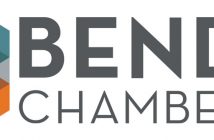Owning a rental property can be a very comfortable and reliable source of income if it is done correctly. It has become an increasingly popular means of investing money, particularly as more and more people look to leave home at an early age and require somewhere quickly to live. That being said, rushing into investment can have catastrophic consequences if you go into it without being aware of all the harsh realities.
It is said you should always measure twice and cut once, and this could not be any more true for purchasing a space with the intention of obtaining an income through leasing it out. Below are four things that you should understand before making your first investment in a rental property.
Select a low-cost property
While it may be tempting to think that bigger is better, choosing a low-cost property as your first investment is a much more sensible idea, even if you have the resources to spend more. There are a number of reasons for this, however chiefly among them is the simple notion that as a rookie property investor, you want to keep your risk as low as possible by staying in the safe zone for your first venture. Some experts recommend limiting the purchase to no more than $150,000.
Using your first property as a way of learning all the tricks of the trade is much safer if it is low-cost than if you have forked out millions of dollars on it. Not only that, but there will inevitably be renovation costs required for getting the property up to scratch for leasing out, meaning you may be thankful for the cheaper price further down the line.
Additional expenses
After purchasing your first investment property, there will be two types of additional costs that you will need to be aware of: fixed and variable. Fixed costs refer to any recurring expenses such as annual property taxes, insurance, routine maintenance, and property management services. Variable costs, on the other hand, denote any major unplanned expenses such as replacing the water heater, air conditioner or heater, roof, fencing, flooring or plumbing. These additional expenses must be factored into the equation when buying a rental property, as they can result in a significant chunk of your income being eaten into. On top of that, it is worth noting that down payments for investment properties are significantly higher than those for a house you plan on living in.
Get the right legal advice
Renting out a property carries with it a considerable number of legal obligations that can be difficult to get your head around. Laws are constantly changing and differ from city to city, making it an exhausting process keeping on top of it all. A good idea is to resort to property consultants who can offer advice across a vast range of property services, including legal expertise. This will help avoid any complications further down the line and allow for a much smoother journey with your investment.




